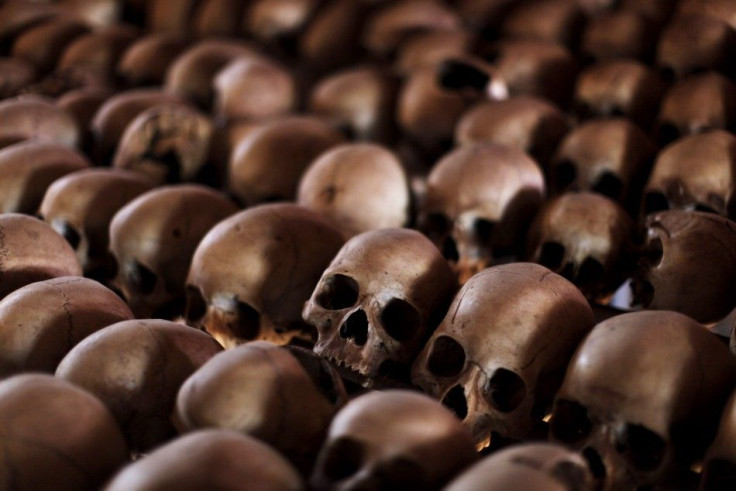Touchy Subject: Rwandan Opposition Leader Ingabire Jailed For Discussing Ethnic Rifts

Victoire Ingabire, the leader of Rwanda’s political opposition coalition, was sentenced to eight years in prison on Monday. The decision highlights the central African country’s ongoing struggle -- even in times of peace -- to suppress the ethnic tensions that devastated the country during its bloody civil war.
Ingabire, 44, was convicted of two offenses: treason, for allegedly working with rebels in the neighboring Democratic Republic of Congo and transferring funds to groups that might carry out attacks against Rwanda; and divisive speech, for her 2010 visit to a genocide memorial during which she asked why members of the Hutu ethnic group were not recognized as victims.
Ingabire had been in exile in the Netherlands for several years before she returned to Rwanda in 2010. She was the leader of an opposition coalition called the United Democratic Forces, and had hoped to run as a presidential candidate against incumbent Paul Kagame, who was elected by a landslide in 2003.
But Ingabire was quickly disqualified and placed under house arrest, while Kagame cruised to victory at the polls. He continues to wield power, having presided over a period of remarkable stability and growth in war-torn Rwanda that has won him praise from the international community.
But Kagame has also been accused of political repression and violations of human rights. Opposition parties have had few opportunities to participate in the political process, and Ingabire has long referred to the president as a dictator.
The charges that got her arrested in 2010 -- and finally sentenced on Monday -- have to do with her bold comments on the sensitive subject of Hutu-Tutsi rivalry. It is a divisive topic that Rwandan officials and citizens make a pointed effort not to discuss.
Ingabire argues that true progress requires openness.
"That's the problem I have with this government. If you talk about ethnicity, they say you are a divisionist," Ingabire said in 2010, according to the Associated Press. "I think the better solution is you talk about it and find a solution."
The controversy goes back to the Rwandan Civil War, which pitted the Hutu and Tutsi ethnic groups against each other.
The devastating conflict was at its worst during the mid-1990s; Rwanda saw massacres, massive displacement and ethnic genocide largely condoned by the ruling regime, which was then dominated by Hutus. About 800,000 people -- mostly Tutsis -- lost their lives.
After the war ended with Tutsis taking over the government, ethnic tensions remained high and about 2 million Hutus spilled into the neighboring Democratic Republic of Congo, or DRC -- then called Zaire -- where Tutsis also lived. Ongoing rivalries there eventually kicked off the Second Congo War in 1998. This devastating clash and its ongoing aftermath have killed over 5 million people.
In a conscious effort to allay tensions, central African politicians today take pains to avoid framing these conflicts in ethnic terms. But it is clear that Hutu-Tutsi rivalries have not died down -- the violence has spilled over into the DRC, while in Rwanda, ethnic tensions still exist just beneath the placid surface of civilian life.
A recent report from the United Nations found that the Rwandan government was supporting the rebel group M23, which operates in the DRC and seeks to overthrow the government there. The group engages in brutal tactics, including frequent rape and the murder of civilians. If the U.N. report allegations are true, M23 is essentially a vehicle for the Rwanda administration to retaliate against the worst perpetrators of violence during the 1990s.
Kagame and his adminisration may hope to keep these lingering tensions buried, whereas Ingabire has worked to bring them to light. A Hutu herself, she remembers that many Hutu people did not participate in the massacres that killed so many Tutsis during the 1990s. Those peaceful Hutus were also killed in large numbers, and she is determined that these victims also be recognized.
Though she has been sentenced to prison time, Ingabire is determined to keep fighting for free expression and political openness in Rwanda. She is expected to appeal her sentence in the coming days.
© Copyright IBTimes 2024. All rights reserved.






















